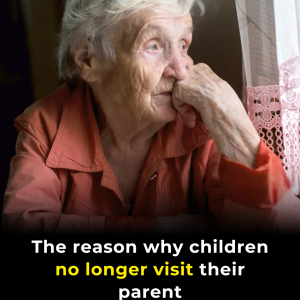
When Someone We Love Passes Away, Letting Go Can Also Be a Way of Honoring Them
When someone we love is gone, we instinctively try to hold on to a part of them — a piece of clothing, a pair of shoes, a cherished object. These tangible reminders become lifelines, anchoring us to their memory.
But sometimes, despite their deep emotional value, these items can slow down our path toward healing. What if letting them go was also a way of honoring the ones we’ve lost?
Here are four types of keepsakes that might be best not to hold onto — or to pass down to future generations.
1. Clothing: When Fabric Holds On to the Past
A coat hanging in the closet. A scarf that still carries their scent. Clothing is often the first thing we choose to keep. It feels like a piece of them is still with us — like we might see them walk down the hall any minute.
But this sense of closeness can become a trap. By holding onto their clothes unchanged, we can unknowingly delay the process of accepting their absence. These items freeze memories in time and can keep us rooted in the past, making grief harder to navigate. For children or grandchildren, inheriting these clothes may carry an unintended emotional weight.
Sometimes, it’s gentler to transform a piece of clothing into something new — a pillow, a pouch, a symbolic keepsake. Or to donate them to someone in need — a gesture of shared humanity.

2. Favorite Objects: Between Comfort and Emotional Dependency
It could be a well-worn book, an old watch, or a little trinket that once sat on a shelf. These objects meant a lot to the person who’s gone. But for those left behind, their emotional weight can be heavy.
Keeping one or two items that truly speak to the heart can be comforting. But when we accumulate too many, we risk turning our homes into memorials — spaces frozen in time. These relics can overwhelm us and make it harder to be present in our own lives.
Passing on a loved one’s legacy isn’t about filling a house with things — it’s about sharing values, stories, and living connections.

3. Shoes: Walking with Memories… or Letting Them Go
Shoes carry symbolism — they represent steps taken, journeys made. But they may not be the most meaningful mementos.
Beyond practical concerns like wear, hygiene, or fit, shoes are deeply personal items. Wearing a loved one’s shoes can carry intense emotional weight, especially for younger people, who may feel pressured to “follow in their footsteps.”
Giving someone new shoes can be a way of saying: walk your own path, freely and fully.

4. Hats: More Symbolic Than They Seem
A hat might seem like a small thing, but it often holds a trace of identity — a reflection of personal style, of daily life. Holding onto it can become a constant reminder of what’s missing, sometimes stirring emotions that are still raw.
Instead of passing down a hat that weighs heavy on the heart, consider creating a positive memory to share — a letter, a photo, a story told over dinner. The most powerful memories are often the ones we can’t touch.

Turning Grief into a Living Memory
Sorting through a loved one’s belongings is never easy, but it’s an important step. It’s not about throwing everything away or trying to forget — it’s about choosing to remember without being stuck in place. It’s about shifting from object to memory, from possession to emotion.
Because what we truly pass down to our children isn’t a burden of sorrow — it’s a quiet strength, a memory at peace, and a love that continues to walk beside them.




